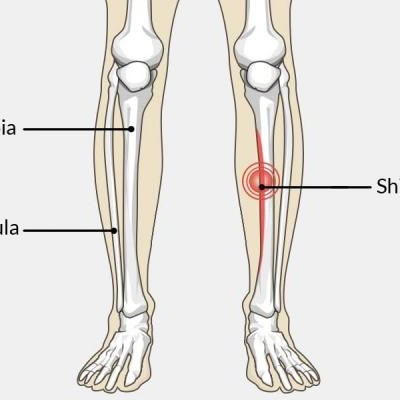Occupational Rehabilitation
Core’s Occupational Rehabilitation program is designed to assist people who have suffered a work or motor vehicle accident to ensure rapid recovery and a durable and meaningful return to work and other activities. Our aim is to empower our patients to understand the most effective ways to overcome their injuries through targeted education, active rehabilitation, and lifestyle modification strategies.
Programs can be tailored and are delivered in the traditional group format under direct contact, or a combination of virtual learning and 1:1 contact sessions.
Click the links below for Industry Case Studies
What is Occupational Rehabilitation?
Occupational Rehabilitation is the process of supporting individuals who have been injured, developed a disability, or have a medical condition, to maintain or return to work. It involves minimising the impact of their functional limitations on work productivity and the workplace. Occupational Rehabilitation programs are often developed by occupational therapists in collaboration with individuals, workplaces, and insurers, with the aim of addressing individual needs and capabilities to help the person achieve maximum sustainable employment.
What are the Benefits of Occupational Rehabilitation?
Occupational rehabilitation brings a range of benefits to individuals recovering from injuries or illnesses. Firstly, it helps improve productivity and job satisfaction, fostering a sense of accomplishment. Secondly, it aids in the restoration of physical and mental health, empowering individuals to regain their independence and perform daily activities.
- Improved productivity and job satisfaction.
- Enhanced physical and mental health.
- Regained independence and functional abilities.
- Prevention of deformities and pain reduction.
- Decreased risk of falls.
- Enhanced home safety and communication.
- Improved overall quality of life.
Occupational rehabilitation programs also focus on enhancing range of motion, strength, balance, coordination, and flexibility, leading to improved physical abilities. These programs contribute to the prevention of deformities, pain, and falls. Additionally, occupational rehabilitation modifies home environments to enhance safety, supports communication after brain injury, and ultimately improves the quality of life.
In Which Cases Should I Look for an Occupational Rehabilitation Professional?
If you have sustained an injury, developed a disability, or have a medical condition that affects your ability to work, you may want to consider consulting with an occupational rehabilitation professional. Occupational rehabilitation professionals can assist in the following cases:
- Injuries sustained from work, such as fractures, sprains, and strains.
- Chronic pain and discomfort.
- Neurological conditions, such as stroke, brain injury, or Parkinson’s disease.
- Mental health conditions, such as depression or anxiety.
- Cardiovascular or respiratory conditions, including heart attack or asthma.
- Cancer and its treatment.
- Repetitive strain injuries (RSIs) caused by the overuse of specific muscles or groups of muscles.
Does the NDIS Cover Occupational Rehabilitation Treatment?
Yes, the National Disability Insurance Scheme (NDIS) covers Occupational Rehabilitation Treatment, as part of its funding support for individuals with permanent or significant disabilities. Occupational therapists, who play a vital role in assisting participants to achieve their goals and lead independent lives, are often funded by the NDIS.
Under the NDIS plan, the Improved Daily Living support category commonly covers occupational rehabilitation services, including work conditioning, ergonomics assessment, functional capacity evaluation, job coaching and placement services, and return-to-work planning. This means that individuals eligible for NDIS funding can access Occupational Rehabilitation Treatment to support their recovery and participation in everyday life.
What is Functional Capacity Evaluation?
A functional capacity evaluation (FCE) is an assessment that measures an individual’s physical abilities and determines their capacity to meet the functional demands associated with their pre-injury role or desired activity. It involves a series of tests that evaluate factors such as strength, endurance, flexibility, and cardiovascular tolerance.
FCEs are used to assist in the recovery and return to work process, helping to determine whether an individual has the necessary attributes for a specific job and monitoring their progress during rehabilitation. We believe in the importance of early intervention, as it allows for quick assessment, treatment, and guidance on suitable duties, functional capacity, and implementation of a personalised treatment plan for injured workers. Whether on-site or at our clinics, our experienced physiotherapists are dedicated to helping you recover and get back to work as quickly as possible.
Spinal Work Injury Triage Clinic
The secrets of early intervention through rapid assessment and management are well-known in the medical community. With injuries sustained at work through to motor vehicle accidents, prompt management can often be impeded due to delays associated with insurance claim processes, impeding the likelihood of best patient return-to-work outcomes.
To mitigate these factors, our Spinal Work Injury Triage clinic was developed in partnership with some of South East Queensland’s leading Spinal Surgeons and Pain Specialists. For the last 5 years, we have been running clinics on the Gold Coast and in Brisbane.
Since its inception, we have assessed and managed over 750 referred injured workers. Our program aims to have screened the majority of patients with specialist review around 4-6 weeks post-injury, and ideally within 2 weeks of GP referral.
Proposed interventions, including surgery and rehabilitation programs (where appropriate), are more likely to be successful with the minimisation of secondary overlay factors including yellow (psychosocial), blue (industrial), and black flags (compensation/legal factors) flags.
To date, we have achieved a 92% return-to-work rate for our patients which has ensured benefits from the process are being shared between the injured worker, the relevant employer and the insurer.
Spinal Rehab Program
Core muscles maintain lumbar curvature, and lumbar segmental positioning, and control the subtle motions above, below and adjacent to the damaged point in the spine.
Even when surgery is required, continuing to strengthen the deep spinal muscles will assist post-surgical outcomes. While the surgical role is to rectify the failed structure (disc, joint fusion etc), this does not automatically restore normal core stability to support the surrounding area.
Our focused rehabilitation process re-educates the body on how to engage these muscles and builds the stable platform the spine requires so we can squat, bend, walk, lift and carry things once we have recovered.
We utilise Real-time Ultrasound feedback to assist our patients with muscle re-education of these muscles.
- Click here for a free copy of our SpinePhysio & Exercise Program
- Click here for a free copy of our Postoperative Spine Rehabilitation Protocol
Our Partners .
Core’s diverse array of partnerships with various leading Medical Specialists across Brisbane, Logan, and the Gold Coast has ensured we provide best-practice Triage Assessment, Pain Management and Functional Rehabilitation Programs.
Our integrated interventions empower patients to understand musculoskeletal injuries and overcome persistent pain barriers, focusing on a durable and meaningful return to work as well as other activities. Programs can be tailored and are delivered in the traditional group format under direct contact, or a combination of digital/virtual learning and 1:1 services.
Patients are referred to Core to provide preferred, conservative alternative assessment and treatment solutions to potential surgery or interventional procedures. Referring Spinal Surgeons include but are not limited to:
Dr Neil Cleaver, Dr Laurence McEntee, Dr Neil Cochrane, Dr Anna Chang, Dr Leong Tan, Dr Gregory Day, Dr Jefferson Webster, and Dr Michael Coroneos. Referring Pain Specialists include Dr Richard Sullivan, Dr Kym Boon, Dr Frank Thomas, Dr Matthew Keys, Dr Daniel Berge, Dr Joshua Daly, Dr Richard Pendleton, Dr Michelle O’Brien, Dr Leigh Dotchin, and Dr Liam Ring.
Early Intervention Program
Early intervention physiotherapy is a viable treatment option for a range of workplace-related conditions that involve the musculoskeletal system. Having early access to physiotherapy services to proactively manage workplace injuries is beneficial for both the business and employees. We have the knowledge and experience of highly trained Physiotherapists to respond to all your injury management needs. Early intervention is shown to reduce time off work and progression to long-term dysfunction.
The Benefits:
- Reduced time-lost injuries
- Reduced workplace claims
- Reduced average cost per workplace claim
- Reduced median days absent for work injury
- Reduced progression of injury to a chronic state
- Reduced worker’s compensation insurance premiums
- Improved workplace culture, productivity and job satisfaction
How Does it Work?
Our team of experienced physiotherapists can provide an initial assessment and early injury management within 24-48 hours of your phone call, at your site or at one of our clinics. Early intervention allows for prompt assessment, treatment, and advice as to suitable duties, functional capacity and implementation of a personalised treatment plan for injured workers.
Following assessment and treatment an update will be sent to your relevant personnel outlining the:
- the onset of injury,
- mechanism of injury,
- Diagnosis,
- initial treatment,
- workplace restrictions,
- likelihood of progression to a Workcover claim,
- any biopsychosocial flags which may impact on recovery,
- request for approval of recommended # treatments required.
Our services can be provided at one of our clinics or at your site on an ad-hoc or regular basis for as little as 2 hours at a time, on a weekly, fortnightly, or monthly basis. It is recommended that subsequent appointments be conducted at a Core clinic.
Pricing
- Pricing for worker assessments is charged at current WCQ rates.
- Adhoc appointment at employer site – min. 2 hours plus travel time.
- Regular session at employer site – min. 2 hours plus travel time with assessments pre-booked at 15-minute intervals (usually booked by employer).
- Communication to the employer – no charge.
- Communication to other external parties (ie: Doctor) at WCQ communication rates.
Contact Us
If you have any questions or would like to learn more about our services, we are more than happy to assist you. Our dedicated team is here to provide you with all the information you need and guide you through the process of accessing our Occupational Rehabilitation program. We understand that every individual has unique needs, and we are committed to tailoring our services to meet your specific goals and requirements. Get in touch.
Multiple locations across Brisbane,Logan and the Gold Coast
RECENT POSTS
Unleash Your Potential: What is Exercise Physiology & How Can It Benefit You?
In the world of health and fitness, the role of exercise physiology cannot be overstated. This…
The Importance of Early Intervention Physiotherapy
The concept of early intervention physiotherapy is pivotal in the healthcare domain, focusing on…
Understanding Shin Splints: Causes, Symptoms, and Effective Treatments
If you’ve ever had them, you’ll know that Shin Splints are a frustrating and painful condition. If…
ACL Injury & Treatment Copy
The Anterior Cruciate Ligament, of ‘ACL’ is one of the major stabilising ligaments within the knee…




